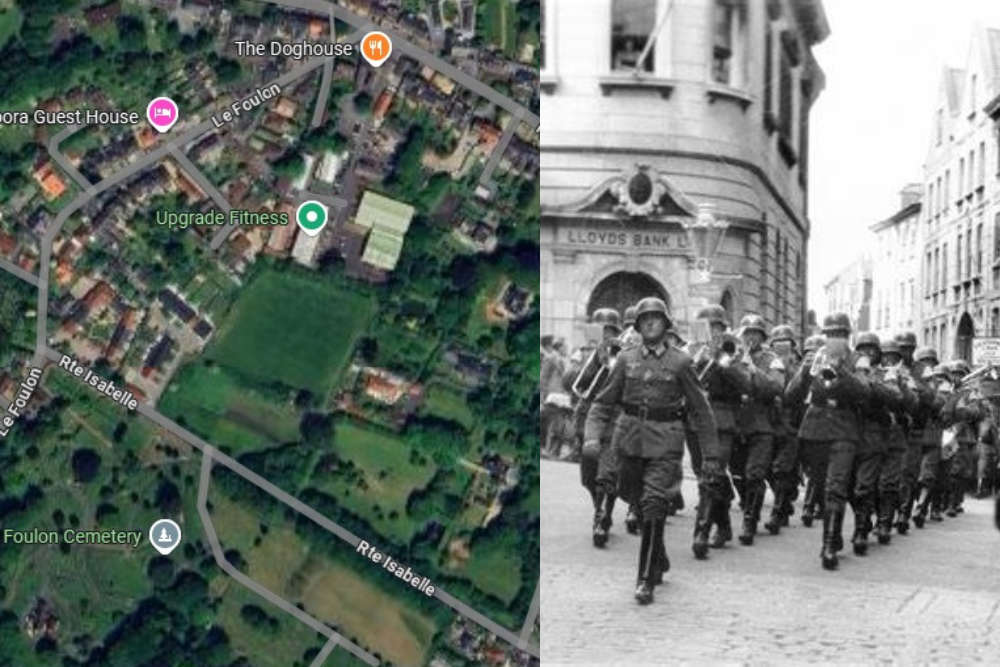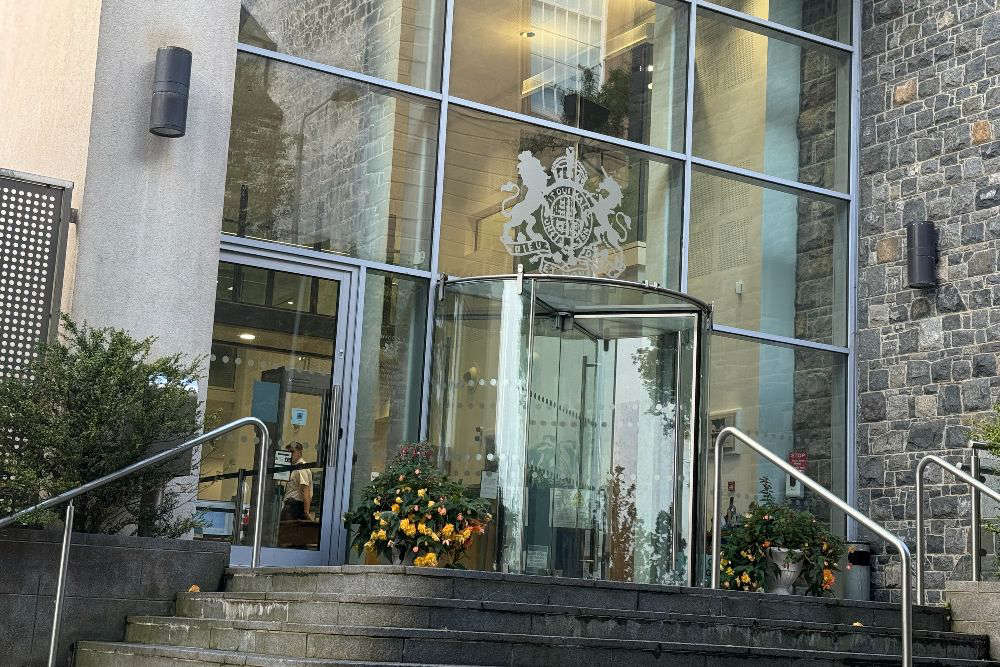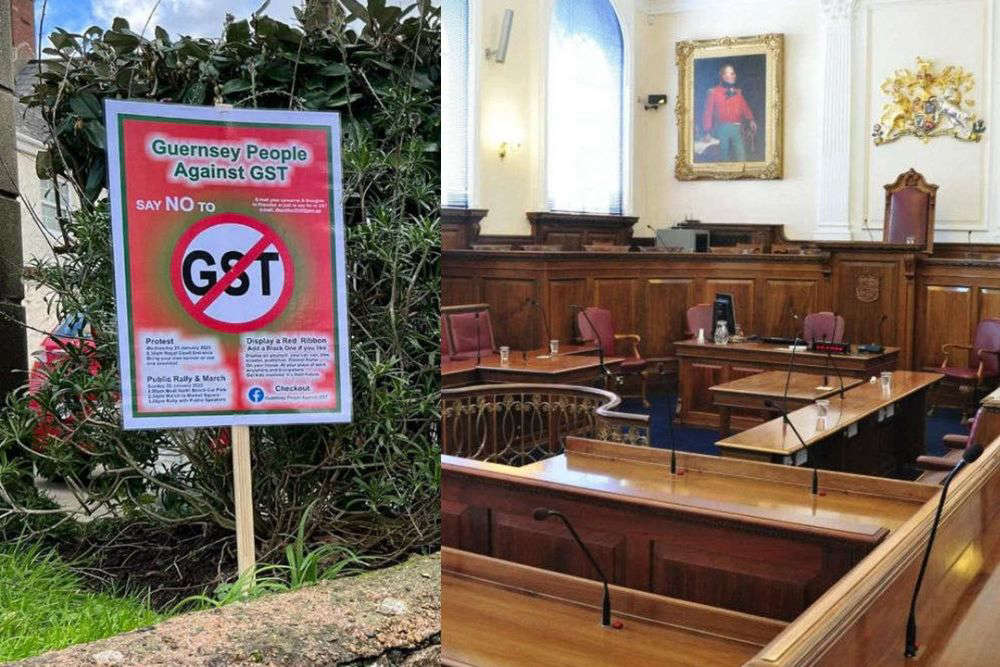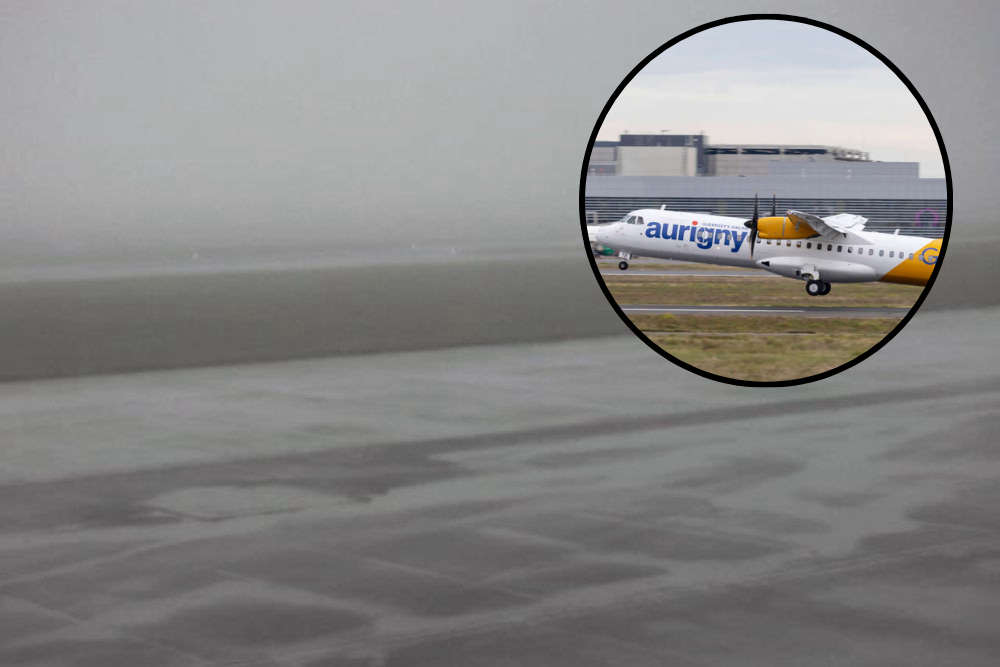
Ben Remfrey says he is sure a deep survey of a field off the Foulon will find the powerful weapons, which will need to be made safe.
The States has announced that specialist firm 6 Alpha Associates will carry out a deep survey of the small field in the Foulon in June.
Ben Remfrey, who has worked in the specialty of unexploded ordnance for decades, approves of the decision to revisit a 2019 survey and go deeper, up to 40 feet.
"These UK specialist companies, they spend a lot of their time surveying building sites, in the major cities that were bombed during WW2, so they have a lot of experience in searching and locating air drop weapons from that period."
"The cone penetration testing that 6 Alpha will do with their rigs on the field well exceeds that so there is no doubt they will find the ferrous anomalies."
Mr Remfrey is sure the bombs are there and says evidence from the war points to this:
"It's recorded in a number of diaries, including the Freemasons and others, on the morning of 4th March 1941, the police guarding the site, the documented evidence of the furrows that the bombs left, and the one that detonated. It's 100% that the bombs are there in situ, yes."
He says once discovered, making them safe follows a routine, although it is unclear when the process might begin:
"There'll be an excavation. They'll literally have to shutter down to where each bomb is and then assess the bombs."
"We expect the MOD will then be involved, in what we call the render safe procedure, in which the bombs are dealt with. You would call it defused."
"They will then be removed from the area."
But he says if the fuses cannot be removed then they have to be dealt with remotely, in situ, which will mean protecting nearby properties.
The field opposite the cemetery is near a group of houses called Wellington Clos.
Ironically, it is believed a Wellington bomber, heading back from a raid on Brest where visibility was poor, dropped them on Guernsey, because the type of bomb on board had to be jettisoned before landing.
But Mr Remfrey says there is also a possibility that a German bomber may have dropped them before attempting to land at Guernsey airport.


 Guernsey Man (23) jailed for abusing teen girl
Guernsey Man (23) jailed for abusing teen girl
 New Guernsey charity to fund gender-affirming items
New Guernsey charity to fund gender-affirming items
 Bank tax receipts boost the States of Guernsey's fortunes
Bank tax receipts boost the States of Guernsey's fortunes
 'Multi-generational' living could ease Guernsey's housing crisis
'Multi-generational' living could ease Guernsey's housing crisis
 Guernsey dance school upset by temporary theatre closure
Guernsey dance school upset by temporary theatre closure
 Guernsey's business leaders come out against a plan to pause GST
Guernsey's business leaders come out against a plan to pause GST
 Plans to improve the gene pool of the Royal Golden Guernsey Goat
Plans to improve the gene pool of the Royal Golden Guernsey Goat
 Fog causes flight chaos at Guernsey Airport
Fog causes flight chaos at Guernsey Airport

